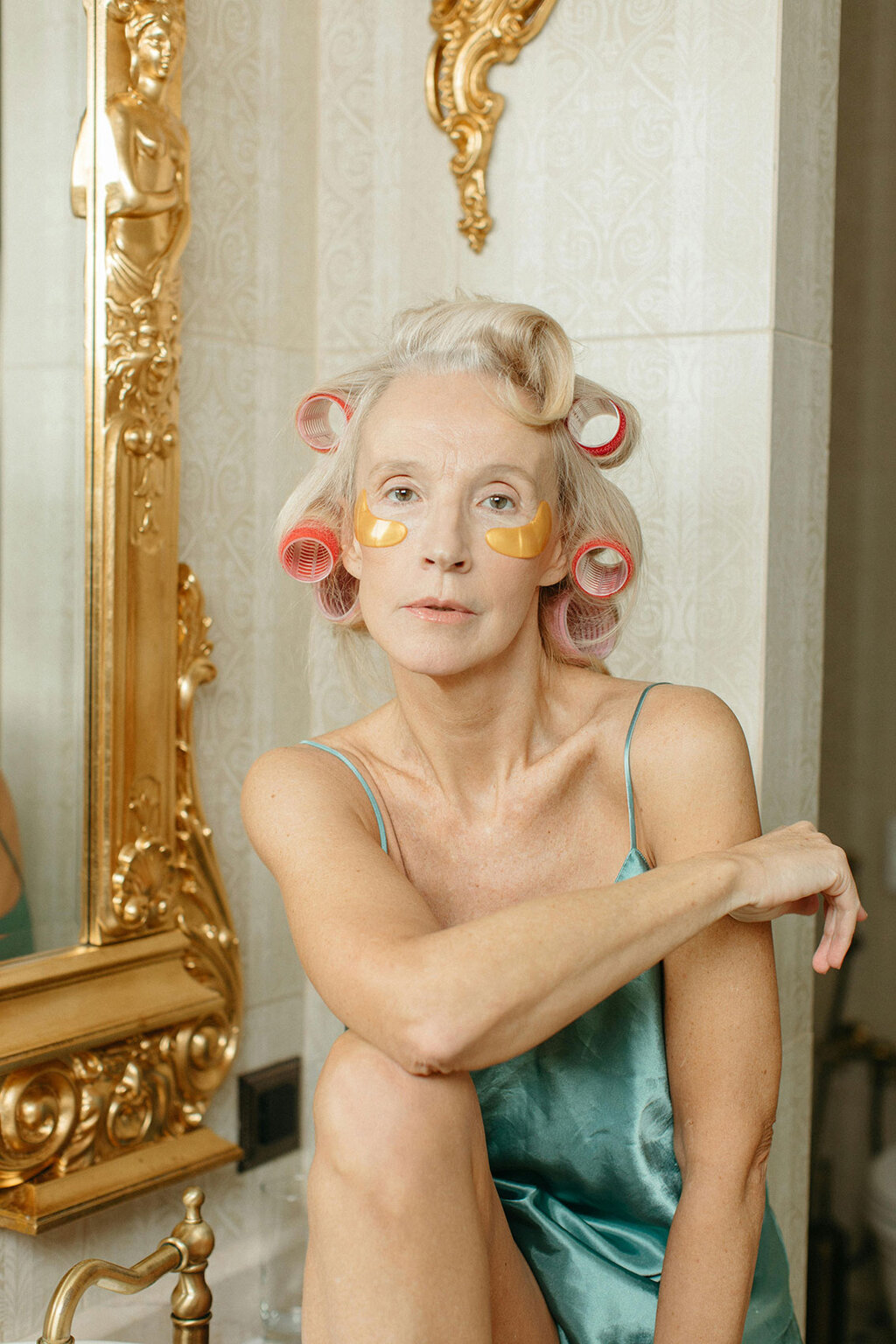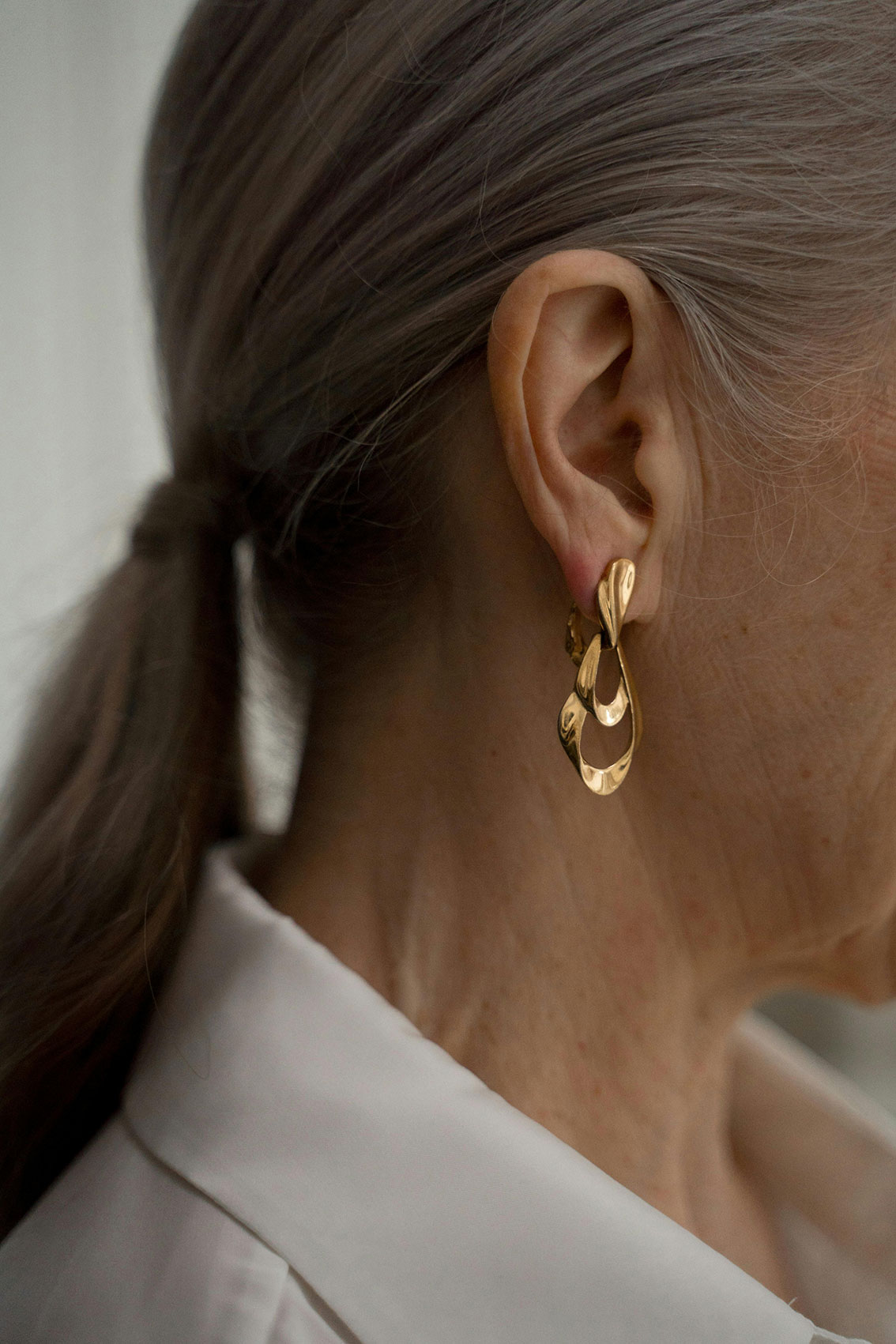
Market trends
on
Skin care
KEYWORDS
TikTok ,
Fragrance trends,
Social media,
Fragrancetok,
Perfumetok.
peer-reviewed
Menopause and andropause: the emerging beauty and wellness solutions for hormonal aging
MICHAEL NOLTE
SVP Creative Director, BEAUTYSTREAMS, Miami, Florida, USA
ABSTRACT:Menopause and perimenopause, affecting millions of women globally, bring a range of physical and emotional symptoms that can last over a decade. With a growing awareness of these changes, the beauty and wellness industries are responding by developing specialized skincare, haircare, supplements, and sexual health products tailored to menopausal women. Telehealth platforms and technologies like wearables are also emerging to help manage symptoms such as hot flashes and sleep disturbances. Meanwhile, the conversation around hormonal aging is expanding to include male andropause, a rarely talked about stage of life in men. The aim of this article is to explore the rise of targeted solutions addressing hormonal changes and their impact on health and well-being.
Menopause and perimenopause are inevitable biological processes that affect half the world’s population. According to The Demography of Menopause published in 1996, by 2030, the world population of menopausal and postmenopausal women is projected to increase to 1.2 billion, with 47 million added to this population each year (1). Menopause and perimenopause are inevitable biological processes that affect half the world’s population. This life stage can bring a range of almost 50 symptoms, through which many women can feel unsupported. Indeed, the physical and emotional symptoms of menopause and perimenopause can span an average of seven years up to over a decade, hence the need for better awareness of these symptoms and how to alleviate them. The many physical changes perimenopause and menopause induce directly affect the appearance of face, body, and hair. Menopause symptoms are affecting, not only a women’s physical state, but also her mental and emotional well-being. Some of the most troublesome side effects for women going through menopause include sleep disruption, hot flashes, mood swings, and brain fog, as well as muscle and joint pains, low libido, and vaginal dryness – among others.
Menopause Care is Becoming a Standalone Category Within Beauty and Wellness
Awareness and education around perimenopause and menopause are growing and menopause care is developing into a distinct, standalone category within beauty, health, and wellness. Recent years have seen startups and indie brands, alongside large, traditional players, investing in the menopause category and offering skincare, body, and hair solutions, wellness supplements and tools, and sexual health products all targeted to the specific needs of women during perimenopause, menopause, and post-menopause, to help them feel better inside and out. According to 2021 data from Grandview Research, the global menopause market size will reach US $22.7 billion by 2028 and is expected to expand at a CAGR of 5.7% between 2021 and 2028 (2). The key message is that the menopause should not be considered as the end of the road but rather, the beginning of a new chapter. Through education, information, and targeted research, the aim is to open the dialogue and help women better manage the physical, emotional, and mental effects of the menopause.

Telehealth Platforms Support Menopausal Women with Prescription Skincare
Toward the declining years, the so-called menopause involves a significant decline in estrogen and progesterone levels, typically occurring in women between the ages of 45 and 55. The drop in estrogen leads to a reduction in collagen production and skin elasticity, resulting in wrinkles, sagging, and thinning skin (3). There is also an increase in skin dryness and itchiness. The observed increase in skin sensitivity and skin prone to irritation is due to the thinning of the epidermis and changes in the skin barrier function. Several telehealth companies are now offering prescription-grade menopausal skincare solutions. Accessing these services from home, upon filling out a medical questionnaire, menopausal women can receive science-backed, tailored prescription and treatment plans to address menopause and perimenopause symptoms. Formulated with prescription-strength, medical-grade ingredients such as estriol or estradiol – two types of estrogens that decline with menopause – a new generation of estrogen-based topical creams offer several skin benefits including increasing collagen production, improving skin hydration, reducing signs of skin aging, and enhancing skin radiance and evenness.
The Rise of Targeted Solutions Supporting Hair Affected by Estrogen Decline
Like the skin, the hair goes through very noticeable changes during the perimenopause, menopause, and post-menopause. The decline in estrogen and progesterone levels leads to thinning, loss of volume, and changes in hair texture leaving hair prone to weakness, damage, dullness, dryness, and shedding (4). A 2022 study published in Menopause, the journal of the North American Menopause Society found that among 178 women seen at a menopause clinic, 52.2% were found to have female pattern hair loss (FPH), with low self-esteem detected in 60% of participants, which increased with the severity of the hair loss (5). These changes can lead to a decline in self-esteem and psychological distress in women. A new generation of brands hitting the market are addressing the effects of the hormonal shifts that perimenopausal and menopausal women face, offering both topical hair care and ingestible solutions to support hair affected by estrogen decline from the inside and out. A growing number of products are being developed to alleviate the symptoms of hair changes due to menopause, helping women to better navigate the hair health challenges that they face during this stage of life.
Targeted Supplements Aim to Alleviate Menopause Symptoms
From gummies to drinks, supplements are getting more diversified and specialized to alleviate symptoms commonly associated with menopause in women. The newest scientifically supported and clinically proven formulas for menopause address issues such as hot flashes, night sweats, restless sleep, and insomnia, while supporting changes to the hair and skin. Supplements are now being designed to cater to each stage of a woman’s menopausal journey, from perimenopause, to menopause, to post-menopause. And recognizing the strong connection between the gut and hormones during menopause and perimenopause, probiotic supplements help restore and maintain a healthy gut microbiome for women experiencing this life stage.
Menopausal Intimate Care and Sexual Wellness Solutions Gain Momentum
While sexuality is not defined by age, age-related hormonal and physiological changes may contribute to a variety of sexual health issues and disappointments during menopause. During menopause, when the body's estrogen level starts to decline, many women experience physical changes to the vagina and vulva, alongside changes in sexual function and libido, leading to increased dryness, sensitivity, and irritation (6). When it comes to caring for intimate skin and promoting sexual wellness, brands are now offering menopause-focused solutions backed by gynecologists to support women's well-being, addressing the intimate health changes that happen during menopause. The latest topical intimate care formulas are designed to support vaginal pH balance, the vulva’s natural microbiome, and the comfort of the intimate skin area; to help restore the vulva’s fragile skin barrier; and address vulval skin dryness and thinning. In addition, a new generation of targeted supplements are designed to address sexual wellness during menopause, enhancing sexual function by restoring moisture and improving comfort. Sexual wellness devices, meanwhile, built specifically with perimenopause and menopause in mind, help relieve symptoms by relaxing muscles and increasing blood flow.

The Emergence of Wearables and Home Technologies to Help Regulate Menopausal Symptoms
Sleep disturbance is traditionally an issue that’s been neglected for women during perimenopause and menopause. Hot flashes and night sweats can be a major challenge for women during this period, leading to discomfort, agitation, disrupted sleep, and feelings of anxiety. From smart thermostats and wearable devices to artificial intelligence solutions and tracking apps, technology is creating solutions within the menopause category. These developments are changing the game for menopausal women who experience hot flashes and night sweats, offering them innovative and effective ways to manage these symptoms while enhancing relief, comfort, and well-being.
Men’s Andropause: A Concern That is Slowly Gaining Recognition
Unlike women, the age-related changes in reproductive hormones in men are more subtle and occur gradually throughout many years of mature life. Andropause, known as the male menopause, is one of the most common types of male hormonal imbalance, which typically appears during the late 40's to early 50's but can start to manifest any time from 30 onwards. This period is characterized by a gradual decline in testosterone levels in aging men (7). Testosterone is a key hormone responsible for maintaining muscle mass, bone density, and skin health. Andropause symptoms include loss of energy, mood changes, decreased libido, decreased brain functioning, erectile dysfunction, decreased muscle mass and strength, increased fat mass, skin alterations, body hair changes, frailty, osteopenia, and osteoporosis. An awareness of hormonal changes among men creates an opportunity for brands to respond to male wellness demands, a topic that has been somewhat neglected in the past, with a new era of solutions formulated to optimize men's hormone levels.


In conclusion, as our understanding of hormonal aging evolves, the beauty and wellness industries find themselves at the forefront of innovation, tasked with addressing the unique challenges faced by menopausal women but also andropausal men. While there is much to learn about the complex interplay of hormones and their impact on skin health, advancements in cosmetic ingredients and products offer hope for effective solutions. The opportunities for personalized skincare and hair care; specialized supplements, intimate care and sexual wellness products and devices; smart wearables and advanced home technology; innovative ingredients; and transparent communication with consumers pave the way for a future where hormonal aging is not only understood but effectively managed through targeted and evidence-based cosmetic solutions.
Conclusion
The future of cosmetics lies in the continued evolution of holistic approaches which represents a transformative shift in the industry, merging scientific advancements, natural ingredients, and wellness principles. By understanding and embracing the interconnectedness of these elements, the cosmetics industry can cultivate products that not only enhance external beauty but also contribute to the overall well-being of individuals and the planet.
The interplay between beauty from within and topical cosmetics is the key for future products. The integration of biotechnology and green chemistry is revolutionizing cosmetic formulations, offering sustainable and biocompatible alternatives.
Developers can implement blockchain to trace the journey of ingredients from source to product. Nevertheless, the efficacy of the natural products should be scientifically proven. Marketers can communicate transparency as a brand value, and parallelly educate consumers by highlighting how specific ingredients contribute to radiant and healthy skin.
By embracing the synergy between these approaches and leveraging scientific advancements, the cosmetics industry can provide consumers with comprehensive beauty solutions that cater to both internal and external dimensions of beauty.
References and notes
- PubMed. The demography of menopause [Internet]. Place of Publication: PubMed; 1996 March [cited 2024 September 25]. Available from: https://pubmed.ncbi.nlm.nih.gov/8735350/
- Grand View Research. Menopause Market Size, Share & Trends Analysis Report By Treatment (Dietary Supplements, OTC Pharma Products), By Region (North America, Europe, Latin America), And Segment Forecasts, 2024 – 2030 [Internet]. Place of Publication: Grand View Research; Unknown [cited 2024 September 25]. Available from: https://www.grandviewresearch.com/industry-analysis/menopause-market
- Thornton J. Estrogens and aging skin [Internet]. Place of Publication: Dermato-Endocrinology; April 2013 [cited 2024 September 25]. Available from: https://www.ncbi.nlm.nih.gov/pmc/articles/PMC3772914/
- Rinaldi F. The Menopausal Transition: Is the Hair Follicle “Going through Menopause”? [Internet]. Place of Publication: Biomedicines; November 2023 [cited 2024 September 25]. Available from: https://www.ncbi.nlm.nih.gov/pmc/articles/PMC10669803/
- The North American Menopause Society. More Than Half of Postmenopausal Women Experience Female Pattern Hair Loss [Internet]. Place of Publication: Menopause, the journal of The North American Menopause Society; February 2022 [cited 2024 September 25]. Available from: https://menopause.org/wp-content/uploads/press-release/prevalence-of-hair-loss-in-postmenopausal-women.pdf
- Peacock K, Carlson K, Ketvertis K. Menopause [Internet]. Place of Publication: StatPearls; December 2023 [cited 2024 September 25]. Available from: https://www.ncbi.nlm.nih.gov/books/NBK507826/
- Mian A, Yang D, Kohler T. Current Management and Controversies Surrounding Andropause [Internet]. Place of Publication: Urologic Clinics of North America; November 2022 [cited 2024 September 25]. Available from: https://www.sciencedirect.com/topics/medicine-and-dentistry/andropause
